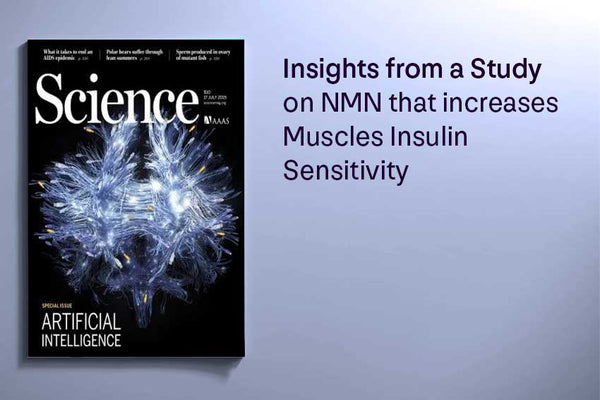
Published in the well-renowned journal 'Science Advances' in 2021, the study titled "Targeting proteins in the aging process – (NMN) A pathway to longevity," delves into the intricate world of the body's proteins and their links to aging. The researchers aimed to identify if our bodies’ protein content could be the secret to slowing down or even reversing the aging process. The study can be found here.
The aging process in humans is a natural event characterized by a gradual decline in physiological and cellular functions. Traditionally, aging has been considered an unavoidable part of life. However, this study disrupts this belief, suggesting that it might be possible to intervene in the aging process at the molecular level. The researchers focused on studying the body's proteins, particularly their balance, and how this balance can affect the aging process and longevity.
Proteins play a crucial role in the body, carrying out different functions, from providing structure and support to cells, to managing chemical reactions and acting as messengers between cells. Over time, as we age, the balance of proteins in our body may change, leading to them performing these functions less effectively. This imbalance can result in aging symptoms, like a gradual decline in overall health, loss of skin elasticity, and decrease in energy levels and cognitive abilities.
The researchers conducted an in-depth review of previous studies and experiments focusing on the protein balance in the body. They found a close link between protein balance and the body's lifespan, concluding that the balance of body proteins might be a determining factor in how quickly we age and how long we live.
The implications of this study reach far beyond mere scientific curiosity. The idea of manipulating the protein balance in the body to slow down or reverse the aging process can revolutionize our approach to healthy aging and longevity. This breakthrough can potentially allow us to manage the aging symptoms better, leading to better health and quality of life in the later years.
It is important to remember that while this study provides a fascinating new perspective on aging and longevity, it is not without its limitations. The study primarily relies on observing the patterns in existing scientific literature, and while this allows for a comprehensive overview, it also means that new, ground-breaking experimental data are not present. Also, researchers acknowledge that further research and clinical trials are needed to test the practical application of these findings.
Key Takeaways
-
The study, published in 'Science Advances' in 2021, explores how the balance of proteins in our body can affect the aging process and longevity.
-
Aging is characterized by a gradual decline in physiological and cellular functions, which this study suggests may be linked with a change in body protein balance.
-
The study's findings suggest that manipulating the body's protein balance could potentially slow down, halt, or reverse the aging process.
-
The possibility of managing aging symptoms in this way could significantly improve the quality of life in our later years.
-
While potentially revolutionary, these findings are based largely on the analysis of existing scientific literature and need further research and clinical trials to test their practical applications.
The scientists' exploration into the world of body proteins and their potential power to slow down the aging process opens up a new chapter in the science of longevity. Their work provides a stepping stone towards a future where we could extend and enhance the quality of our lives through scientific advances.
